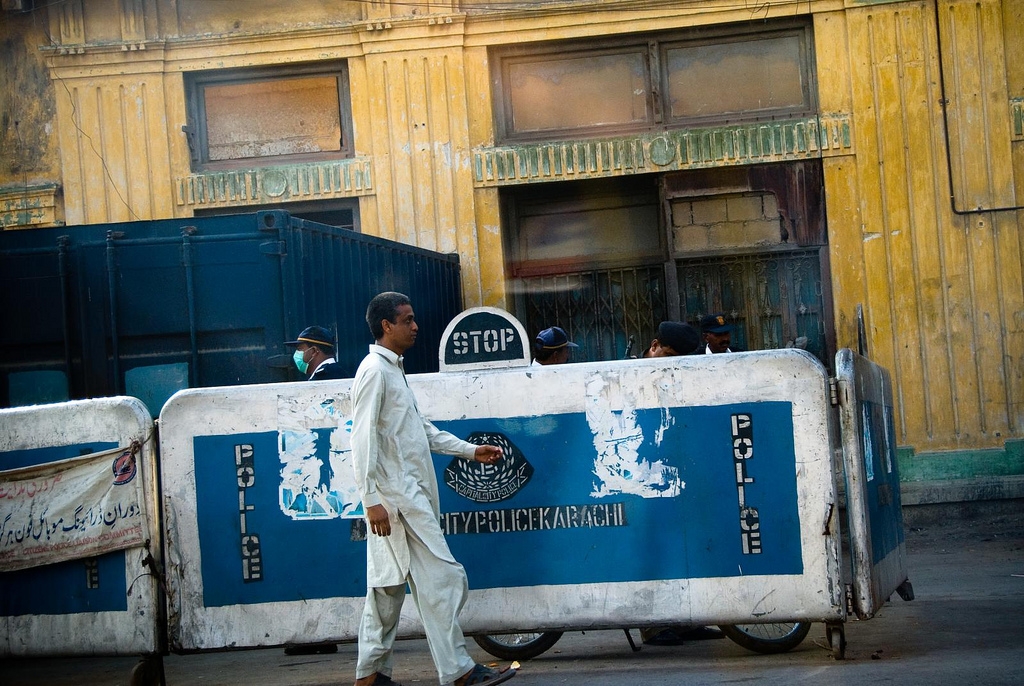Police Reform in Pakistan Must Be Part of National Agenda

The following is an excerpt from a forthcoming report by Asia Society’s Independent Commission on Pakistan Police Reform. The report will be available in print and for download on July 23, 2012.
The present police system in Pakistan was designed in 1861 by the British for an altogether different set of social, administrative and political realities than what the country faces today. Scores of national and international expert missions have concluded that the colonial model is no longer relevant. Pakistan needs to pursue comprehensive police reform as an integral part of the national agenda, regardless of which party is in power.
There is a growing recognition that the task requires a concerted effort by all stakeholders — the state, the private sector and civil society. Without enduring partnership and coalition building among the principal actors involved, there can be no hope of significant police reform. An enlightened and determined political leadership, high levels of public support, and a motivated and well-led civil society that demands better standards of police performance are critical for change.
Police reform is one of the greatest challenges confronting Pakistan. It is a challenge that can and must be met. There are no shortcuts and no easy answers. In order to move forward with reform, the following actions should be considered:
- Responsibility for maintaining law and order should rest unambiguously with the police. The senior hierarchy must be made accountable not merely for the administration of the force, but also exclusively for all operations connected with the maintenance of law and order. Urgent steps are required to render the police force professionally competent, operationally neutral, functionally cohesive and organizationally responsible for all of its actions.
- The role, duties and responsibilities of the police must be oriented in a manner in which the service function is prioritized and the prevention and detection of crime is viewed as having a social purpose. The reform strategy should also seek to solicit the support and cooperation of the people.
- If Pakistan is to succeed in reforming its police, it will need the generous support of the international community. It will be impossible to reinvent the existing outmoded police system without the technical assistance from countries with exemplary policing systems.
- There must be a national consensus on the future reform agenda. The police cannot be reformed without reference to the criminal justice system and the larger political and social order of society.
- No police force can hope to be accepted by the public as a true professional organization committed to upholding the rule of law unless its officers are genuinely free from political, religious, ethnic and racial biases and have a reputation for enforcing the law fairly and justly, especially when faced with difficult circumstances. Pakistan’s police force and the relevant stakeholders must work together to develop and implement specific strategies aimed at ensuring that the less privileged are afforded equal access to policing services.
- The senior police leadership must maintain a strong commitment to the cause of reform. It is inconceivable to turn around an organization that is designed to preserve the status quo without top management’s unwavering support for organizational change. Observing internationally accepted organizational practices in relation to police administration is a key requirement in this context. The onus of ensuring malpractice-free management of the force squarely rests with the senior police hierarchy. Quality human resource management, efficient use of financial resources and the adoption of modern technology are core areas that demand initiatives from the police leadership.
- The objective of police reform is largely achievable through implementation of Police Order 2002, with minor amendments, throughout the country, including the provinces of Sindh and Balochistan, the federal capital of Islamabad, Gilgit-Baltistan, and Azad Jammu and Kashmir. In due course, the order should be extended to the Federally Administered Tribal Areas as well so that the whole country is governed under a common order.
Shoaib Suddle, one of South Asia’s leading police and justice sector reform specialists, is a visiting criminal justice expert at the United Nations Asia and Far East Institute on Crime Prevention and Treatment of Offenders in Tokyo and an Advisor to the Turkish National Police. He also serves as the International Director of the Asia Crime Prevention Foundation in Tokyo. He currently holds the constitutional post of Federal Tax Ombudsman of Pakistan as well as the Chair of the Forum of Pakistan’s Ombudsman. He previously headed Pakistan’s Intelligence Bureau, and is the former Inspector General of Police in Sindh, Director General of the National Police Bureau, and Inspector General of Police of Balochistan.
